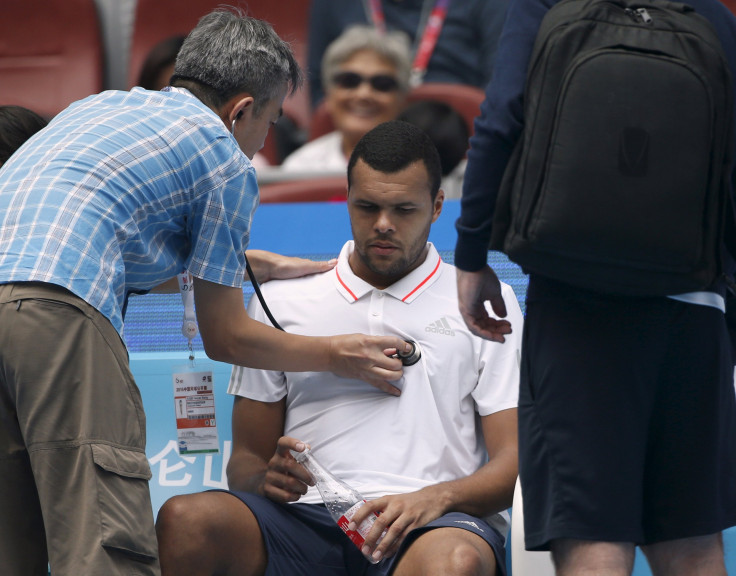Beijing Smog At China Open: Tennis Stars Complain Of Dizziness, Vomiting At Annual Tournament

Beijing has several years to clean up its air before hosting the 2022 Winter Olympics, but meantime the pollution is taking a toll on some other athletes. Dizziness struck French tennis player Jo-Wilfried Tsonga during a match at the China Open Monday, and Martin Klizan, a Slovakian player, complained of coughing “uncontrollably” and vomiting after his match. Their symptoms brought renewed public and global attention to Beijing's notorious pollution, as China issued a yellow alert Tuesday for smog in the city.
“There is such an extreme smog in the city, that due to my health, which should be a priority of every tournament organisator [sic], unfortunately, I will have to leave out this tournament from my calendar for the rest of my tennis career,” Klizan wrote in a Facebook post that was later deleted.
China’s smog is not just infamous but also deadly. In 2012, 7 million people died as a result of air pollution, according to the World Health Organization. Of those, 40 percent lived in China and the surrounding region, Bloomberg has reported. The Western Pacific region, which includes China, had the highest rate in the world of deaths caused by pollution.
What a smog day in #Beijing! pic.twitter.com/BWX00wl6qU
— China Xinhua News (@XHNews) October 7, 2015
At times, pollution levels in Beijing have been more than 200 times the maximum levels recommended by the World Health Organization. In January, for instance, levels of PM2.5, tiny particles of dust, dirt, smoke and other substances that are small enough to be inhaled and lodge themselves in human lungs, reached 568 micrograms per cubic meter. These PM2.5 particles can enter the bloodstream and eventually cause heart attacks. The WHO’s recommended maximum is 25 micrograms per cubic meter.
These microscopic bits of matter can come from emissions from cars, industrial plants, chemical plants and other sources. The Chinese government has promised to improve air quality, saying it would ban the construction of certain new industrial plants starting in March 2015.
#Beijing #smog over 2x worse as worst U.S. location today. AQI > 400 earlier. pic.twitter.com/bsXai0hN9A
— Jonathan Erdman (@wxjerdman) October 6, 2015
Tsonga, who lost his match to the Austrian Andreas Haider-Maurer, did not say it was pollution that caused his dizzy spell. "I don't know. You know, nothing in me can calculate if it's enough oxygen for me or not. I just play tennis. Today I had an opponent, he was just better than me today," he said, the website SuperSport reported.
Klizan, however, explicitly blamed the smog for the health problems he encountered during and after his match.
China’s National Meteorological Center continued its yellow alert Wednesday, warning people to “reduce outdoor activities” in areas affected, including Beijing, where visibility was down to just over half a mile, CNN reported.
© Copyright IBTimes 2024. All rights reserved.












